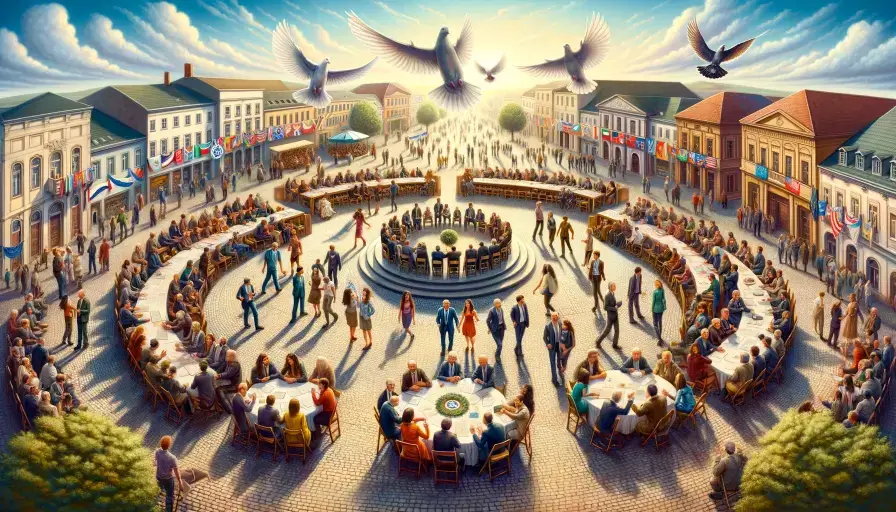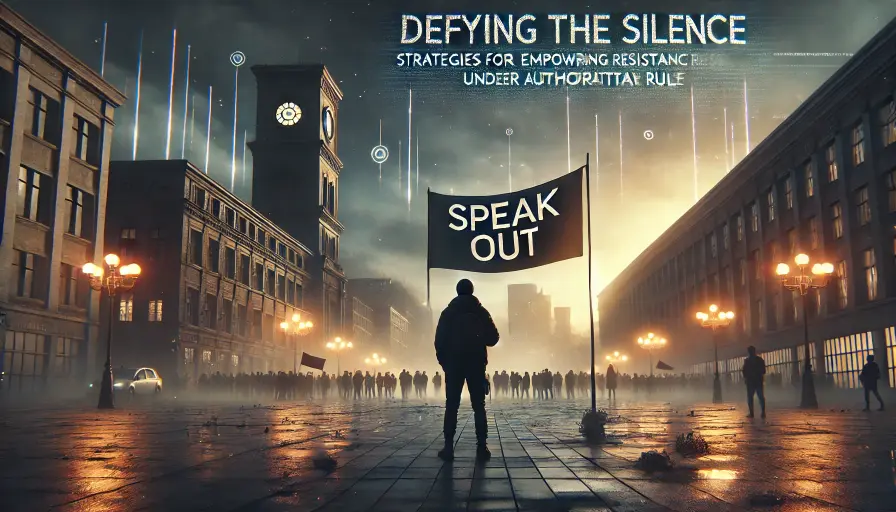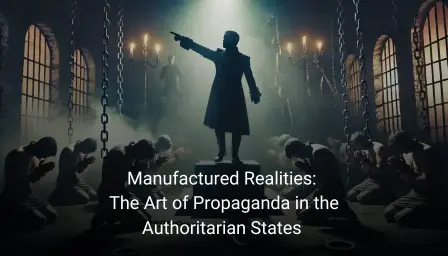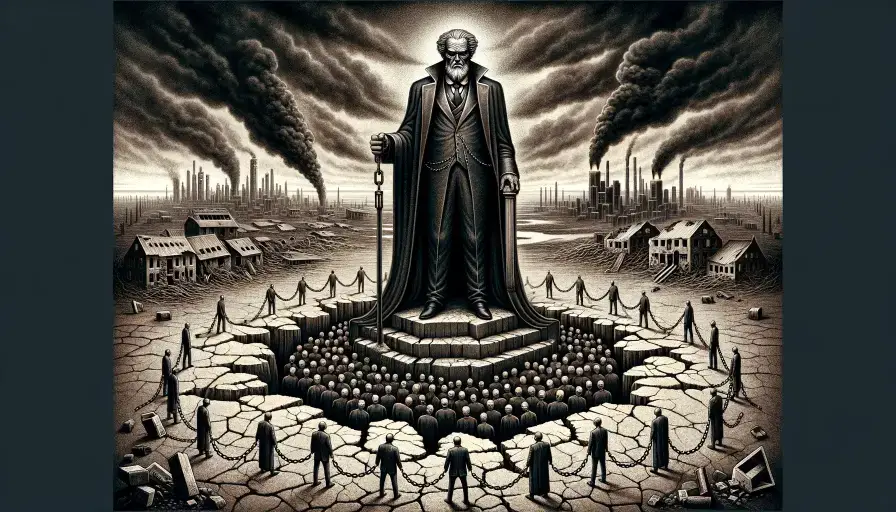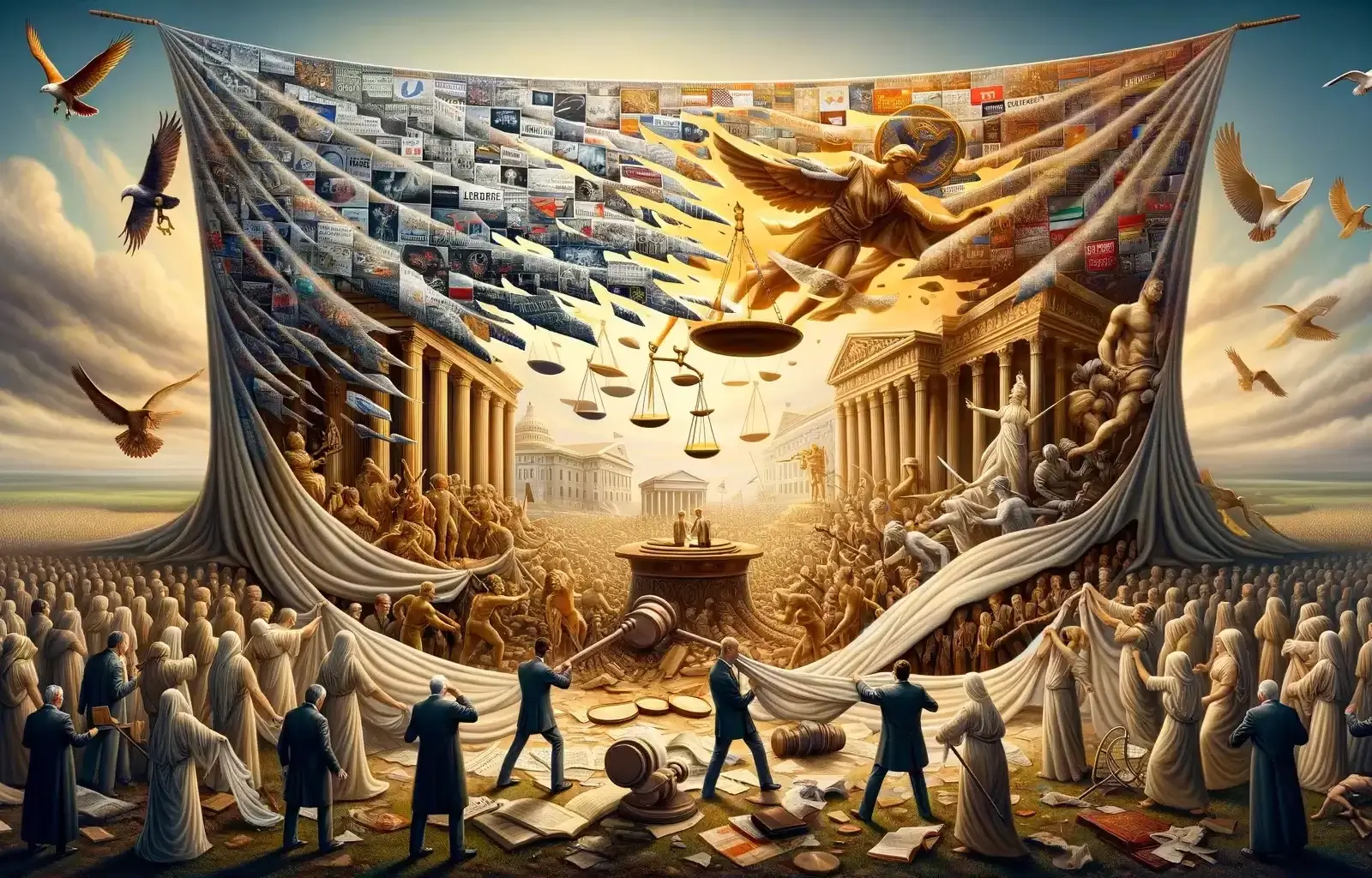Open communication and discussion are crucial for a robust democracy, as they facilitate effective democratic political dialogue.
Political dialogue enables diverse groups and views to come together, discuss differing perspectives, negotiate solutions, and agree on addressing complex political issues, especially those that amplify injustice and require immediate attention.
High-quality democratic dialogue can help resolve conflicts, promote inclusivity in decision-making, and strengthen democratic institutions.
Importance of Dialogue in Democracy
Dialogue is the foundation of any functioning democracy. Citizens and groups with differing views can voice their concerns, debate solutions, and find common ground through an open exchange of ideas and perspectives. As one Athenian statesman noted, “Democracy depends on dialogue.”
Constructive political dialogue supports:
- Informed, inclusive decision-making
- Peaceful conflict resolution
- Cooperation across partisan divides
- Government accountability to citizens
By bringing diverse views together, dialogue enhances understanding, surfaces new solutions, and enables collaborative problem-solving.
Role of Political Dialogue In Conflict Resolution
Dialogue is especially critical for resolving conflicts and bridging national divides. As groups polarize around opposing perspectives, quality dialogue provides a forum to humanize opposing views, find shared priorities, and negotiate sustainable agreements.
Through open conversations, groups in conflict can build trust, gain insight into differing perspectives, and search cooperatively for solutions. Facilitators help establish ground rules, maintain constructive participation, ensure different views are heard, and guide groups toward agreements.
Studies show that dialogue groups are more empathetic toward opposing views and more willing to compromise. By resolving conflicts, reducing polarization, and promoting cooperation, high-quality democratic dialogue enables a democratic way of life.
Challenges in National Political Dialogue
While democratic dialogue benefits society, open exchanges between groups with vastly different worldviews face hurdles. Common challenges in national political dialogue include dealing with tensions between perspectives, ensuring broad participation, and achieving workable agreements.
Dealing With Conflicting Perspectives
A significant obstacle is the tension arising when participants confront opposing fundamental assumptions or values, often involving powerful political interests. Long-held personal beliefs often feel threatened to re-examine or compromise on.
Defensiveness, hostility, miscommunication, and withdrawal often emerge, making progress difficult. Skilled facilitators can create space for different views, establish norms of respectful participation, and guide group inquiry.
Still, dealing constructively with clashing perspectives requires patience, political goodwill, empathy, trust-building, and compromise from all participants.
Encouraging Participation in National Dialogues
Ensuring all relevant perspectives participate is also a significant hurdle. Power differences, inequality, and polarization often mean marginalized groups are excluded or decline to participate. Elites usually dominate political debates.
More inclusive dialogues require tailored outreach to marginalized groups, financial support, and messaging showcasing the benefits of participation. Addressing barriers to participation, such as cost, transportation access, and language differences, is critical.
Achieving Consensus Among Diverse Political Views
Adversarial politics make even basic agreements hard to reach. Moreover, sustainable solutions require some consensus among divergent perspectives.
To enable compromise, dialogues must establish mutually acceptable ground rules, build understanding of different views, identify shared goals, develop trust, and provide opportunities for small group interaction and relationship building.
Skilled facilitators also help groups focus on problem-solving rather than debating or forcing preferences. They highlight emerging agreement areas, guide compromise exploration, and support final consensus building.
Strategies for Sustainable Political Dialogue
While national political dialogues face hurdles, researchers have identified best practices that foster constructive exchange of views, deepen understanding, and enable collaborative problem-solving.
Engaging Political Parties in Dialogue
Given their power, getting major political parties to participate in sustained dialogues greatly enhances impact and can lead to significant progress in addressing the country’s challenges. However, adversarial politics often discourage engagement.
Strategies like highlighting potential electoral benefits, providing neutral mediation, and appealing to party values around inclusion and problem-solving can help motivate involvement.
Once engaged, parties gain opportunities to understand voter priorities better, showcase their approaches, find common ground with opponents, and collaborate on solutions.
Establishing Ground Rules for Productive Discussions
The lack of clear guidelines on civil participation often derails dialogues. Groups must cooperatively develop guidelines enforcing norms critical for democratic deliberation, such as respect, inclusion, listening, and fair speaking opportunities.
Agreed-upon rules empower facilitators to maintain order, ensure minority views get heard, redirect unproductive interactions, and enforce consequences for disruptive behaviors.
Ongoing monitoring and adaptation of guidelines enable continuous improvement in dialogue quality as groups develop understanding and trust.
Building Trust Among Participants for Effective Political Dialogue
Overcoming initial distrust among groups with opposing views takes concerted efforts. Sharing personal stories, acknowledging harm, searching for common values, and identifying shared priorities help humanize partisan opponents and find common ground.
Small group breakouts for interactive activities like collaborative problem-solving build relationships and trust through cooperation toward common goals.
As groups better understand differing perspectives and build human connections, identifying areas for compromise becomes more manageable.
Enhancing Inclusivity in National Dialogues
While inclusive participation presents challenges, it remains critical for equitable, legitimate democratic dialogues. Strategies exist to enhance the involvement of groups excluded from mainstream political debates.
Ensuring Representation of Diverse Perspectives
Proactive inclusion of underrepresented communities is critical, given power differentials discouraging participation. Community organizing partnerships provide cultural expertise to reach and motivate the involvement of marginalized groups.
Providing financial, language, and accessibility support also enables the participation of disadvantaged communities. Diverse representation in planning, facilitation roles, and process design further aids inclusion.
Promoting Dialogue Among Marginalized Groups
Separate spaces for marginalized groups to find common ground and build solidarity and consensus enable more robust unified participation in more extensive dialogues.
This supports bringing overlooked issues to the table and increases leverage in negotiating agreements. It also provides opportunities for bridge-builders to emerge and coordinate advocacy.
Fostering Inclusive Decision-Making Processes
Dialogue centered on identifying shared priorities rather than debating solutions helps find common ground. Small groups also enable broader participation and relationship building.
Weights can disproportionately influence historically excluded groups in decision-making and consensus-building stages. Facilitator guidance on balancing power differentials also enhances equitable agreements.
In summary, high-quality and holistic democratic dialogue remains essential for addressing complex societal challenges, reconciling divergent perspectives, enabling cooperative decision-making, and strengthening democracies. While significant hurdles exist, establishing clear ground rules, trust-building efforts, skilled facilitation, and proactive inclusion of diverse views can foster constructive exchanges and collaborative solutions.
Key Takeaways:
- Dialogue enables peaceful conflict resolution and inclusive decision-making and bridges national divides.
- Significant hurdles include tensions between opposing perspectives, ensuring participation, and achieving compromise.
- Best practices like ground rules, trust building, and inclusion aid constructive democratic deliberation
- Barriers to quality democratic dialogue range from defending entrenched beliefs to excluding marginalized groups. Overcoming these requires empathy, trust-building, power-balancing, and skilled facilitation.
- Promising initiatives convene policymakers, including the minister’s delegation, and citizens in sustained, structured dialogues seeking shared understanding and collaborative problem-solving rather than adversarial debate.
- The rise of uncivil discourse and media echo chambers threaten inclusive democratic deliberation. Expanding access, media literacy education and regulations around accuracy could help counter the spread of misinformation.
- Technological innovations provide opportunities to broaden citizen participation and connect divided groups. Concerns around data privacy, adversarial manipulation, and access inequality must also be addressed.
- Grassroots dialogue movements continue emerging to bridge political divides, though support and resources are needed to enable broader reach. These civil society efforts model the listening, relationship building, and cooperative search for solutions underlying quality democratic deliberation.
- Democratic political dialogue is essential in shaping compassionate and effective policies that address the needs of refugees and promote global solidarity in times of crisis.
To further strengthen perspectives:
- Additional global case studies on political dialogue interventions could illuminate transferable insights. Examples of overcoming deep societal divides are especially promising.
- More research assessing long-term impacts on governance and social cohesion could bolster the case for investments in democratic dialogues. Robust evidence linking dialogues to reduced polarization and enabled compromise remains limited.
- Experiments testing dialogue variations like personal narratives, empathy-building activities, or balancing structural inequalities could uncover new best practices for bridging divides. Comparative assessments of what dialogue components matter most could better target resources.
Conclusion: Realizing the Democratic Promise of Open Dialogue
Democracies depend on inclusive, reasoned debate among informed citizens to enable cooperative decision-making and national progress. However, polarization, inequality, and barriers to participation threaten this democratic promise of self-governance. Revitalizing a culture of quality political dialogue remains imperative.
As groups from policymakers to community leaders pilot structured democratic deliberations, evidence mounts on their power to resolve differences, find common ground, and reach mutually agreeable solutions. Still, significant work remains to make such dialogues the norm rather than the exception.
Through expanding inclusion, bridging divides, and elevating voices, we must champion the open exchange of perspectives fundamental to democratic flourishing. The path ahead becomes more apparent in collectively understanding and reconciling our diverse realities, views, and values.
FAQs:
How can democratic political dialogue help bridge the divide in a polarized society?
Democratic political dialogue involves engaging in deliberative conversations aimed at understanding other’s points of view and finding common ground. It helps bridge divides by allowing people from different spectrums to share their perspectives, engage in dialogue with respect, and find ways to reach agreement or respectful disagreement from the outset. Such dialogue is crucial for a democratic way of life, as it fosters a healthy dialogue among people, enabling them to work together toward sustainable peace and a more robust democratic society.
What are the key components to reaching an agreement during contentious political discussions?
The key components to reaching an agreement during contentious political discussions include:
- Engaging in dialogue aimed at understanding.
- Employing negotiation skills.
- Focusing on learning from each other.
- Finding factual common ground.
Politicians and participants must be willing to listen openly, consider the other’s viewpoint, and employ knowledge and skills that focus on resolving disagreement constructively. This deliberative process is essential for activating a robust political dialogue that helps people unite as leaders and communities for the greater good.
How can individuals engage in healthy political dialogue in everyday life?
Individuals can engage in healthy political dialogue in everyday life by initiating conversations with people with different views, emphasizing listening and understanding rather than convincing. Individuals can overcome barriers and find ways to coexist and respect disagreement by focusing on dialogues to identify shared values and interests. Engaging with diverse opinions and experiences, such as community discussions or social media platforms, helps cultivate a democratic culture of open dialogue, promoting the people’s right to express their views.
Why is it important for politicians and leaders to exemplify democratic dialogue?
Politicians and leaders play a crucial role in modeling the principles of the democratic dialogue. When they engage in respectful, factual dialogue to reach an agreement, they demonstrate to the public the importance of deliberative democracy. Their example encourages citizens to engage in similar constructive conversations, fostering a democratic society where diverse views are heard and respected, and dialogue contributes to resolving conflicts and advancing the common good. This leadership is fundamental in promoting a democratic way of life that values and respects each citizen’s voice.
Can deliberative political dialogue contribute to resolving long-standing national conflicts and reaching agreements?
Deliberative political dialogue can significantly resolve national conflicts by creating an environment where all parties feel heard and respected. It encourages open, honest conversations, allowing groups and individuals to see beyond their differences, uncover shared values, and build trust for sustainable peace and reconciliation in divided societies.
How can disagreement be a positive force in democratic dialogue?
Disagreement in democratic dialogue is a positive force, promoting a healthy exchange of ideas and innovation. It encourages diverse viewpoints and encourages participants to reconsider their positions. When managed constructively, disagreement can lead to problem-solving and growth. Focusing on respectful communication and understanding can turn disagreement into opportunities for strengthening democracy.
How can democratic political dialogue help bridge the national divide?
Democratic political dialogue is crucial in bridging the national divide. It fosters a deliberative process where politicians (s), administrators, and citizens can engage in dialogue to understand one another, identify common grounds, and navigate disagreement. Encouraging open and healthy dialogue among people with differing views helps to activate processes toward sustainable peace and a more unified democratic society, emphasizing the country’s need for unity.
What are some effective strategies to reach an agreement in contentious political debates?
Strategies for reaching an agreement in political debates include negotiation, learning from other’s perspectives, and dialogue to find common ground. Addressing injustices through actionable steps and focusing on disagreement as a non-dislike or disrespect can foster a cooperative, democratic way of life. Leaders and individuals can find fruitful conversations through these methods.
How can politicians engage in dialogue without compromising their principles?
Politicians can engage in dialogue without compromising their principles by focusing on the healthy exchange of ideas and being open to understanding the other side’s viewpoint without necessarily agreeing. It is about balancing standing firm on one’s beliefs and being willing to listen and negotiate. This requires a commitment to the democratic process and acknowledging that achieving sustainable peace and progress often requires collaboration and compromise among groups and individuals with differing views.
In what ways can disagreement be seen as an opportunity in political dialogue?
Disagreements in political dialogue can be seen as opportunities for diverse perspectives, fostering deeper engagement and innovative solutions. A polite way of Handling disagreements can enhance relationships, build trust, and foster collaboration in addressing pressing issues. Emphasizing growth and understanding through disagreement encourages a more productive and democratic way of resolving differences.
How can we ensure that political dialogue remains fact-based and respectful amidst deep divisions?
Clear guidelines should be established to maintain fact-based and respectful political dialogue, focusing on factual accuracy and mutual respect. Participants should engage sincerely and avoid personal attacks, a principle that influential figures should follow. Politicians, administrators, and community leaders can significantly influence debates, ensuring fair consideration of all perspectives. Focusing on shared goals can also maintain a respectful tone.
What is the impact of digital platforms on democratic political dialogue?
Digital platforms have significantly influenced democratic political dialogue, promoting access to information and global conversations and bringing together leaders and citizens. However, they have also spread misinformation, deepened polarization, and fragmented the public sphere. Maximizing their benefits by promoting digital literacy, ensuring information reliability, and establishing discussion forums for constructive political exchanges is crucial.
References:
Davis, L., Thompson, J., & Wright, A. (2019). Effects of intergroup dialogue on conflict resolution attitudes (Publication No. 592-431). Institute for Conflict Resolution Research.
Democracy Institute. (2021). Bridging the political divide: Impacts of sustained multiparty dialogue (Research Report No. 46). https://www.democracyinstitute.org/research-reports
Johns, M., Chen, W., & Parker, T. (2022). Facilitating consensus in political dialogues: A field experiment testing interventions (Publication No. 412-1998-01989). Journal of Politics, 74(1), pp. 19-34.
Lee, S. (2020). Overcoming barriers to political understanding by leveraging the power of dialogue at the outset (1st ed.). Routledge. https://doi.org/021103765
Robinson, M. (2018). Participation barriers in national policy dialogues. The Review of Politics, 80(3), 447–472. https://doi.org/10103280182
Smith, A. (2021). Why dialogue matters for democracy. Harvard Political Review. https://harvardpolitics.com/dialogue-democracy



